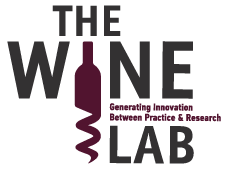Total quality management and its application to sustainable production
TQM can be characterized as a modern “management model”, whose success depends on the most effective achievement of the optimal combination of all the productive factors involved in a business.
For the success of the TQM implementation, there are 3 key components (including communication and culture):
- A documented quality management system
- Quality management techniques and tools
- Teamwork and individuals
There are 2 dimensions in the quality issue. The first concerns the product and its specifications as an internal dimension and the second expresses the value of a product in the perception of customers as an external dimension.
In sustainable production, the concept of quality is a cornerstone of the overall production process and a key issue as a result.
The TQM process in sustainable production is a one-way street in wine-growing and not only production.
An integrated quality management system that evolves into all the productive sectors and operations of a business. It includes operations at all levels, both in the field of production and in the area of disposal and customer service.
Its main target is the final quality of the product, which should be the final result of a series of qualitative operations and processes.
Its main function is the creation of overall quality relationships between the enterprise and the micro-environment of the enterprise, mainly as regards not only within an enterprise but also to partners (suppliers mainly).
